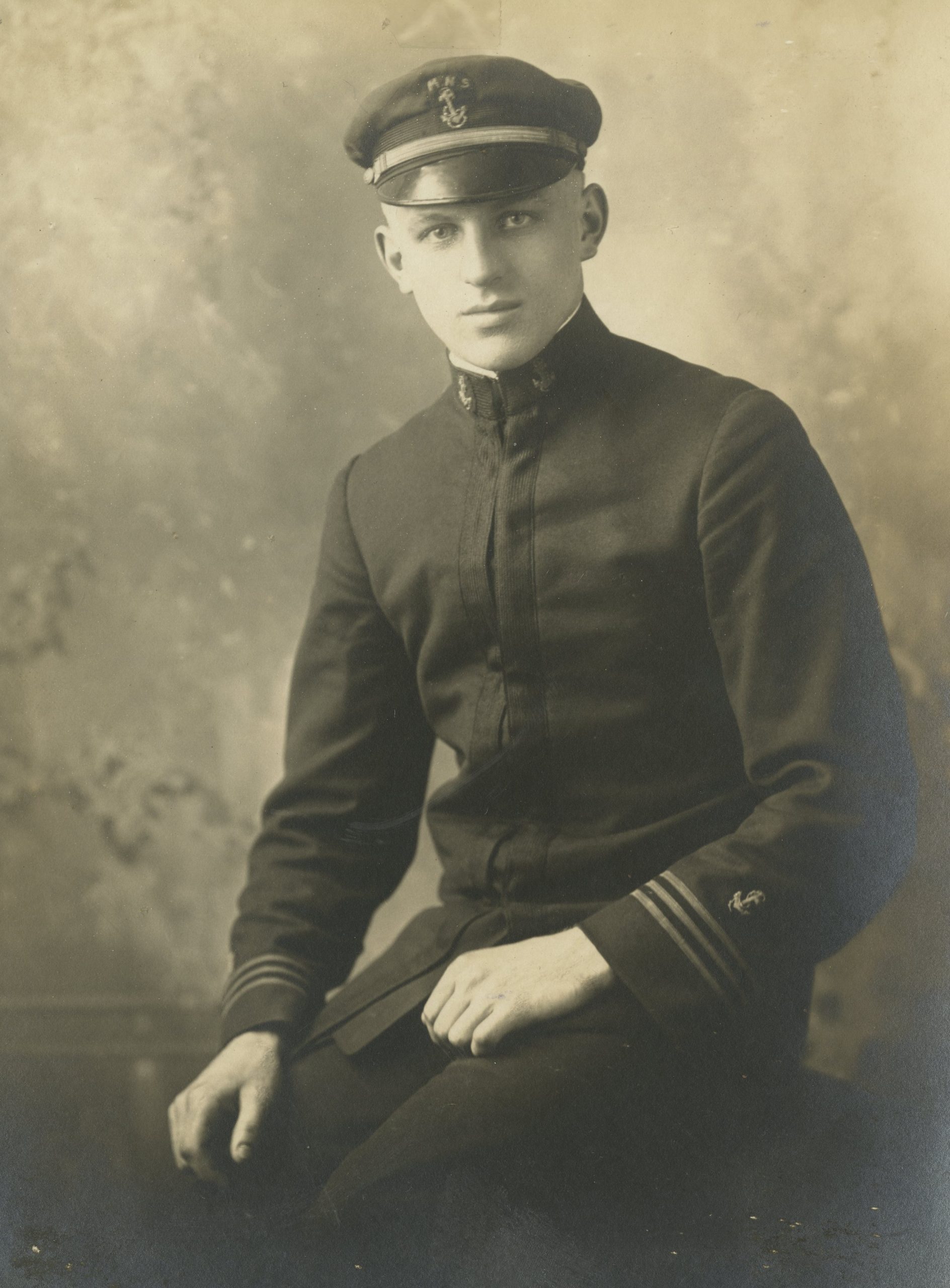“The cadets lost no time in getting into the ruins, scouring every corner and pile for dead and injured…the prompt action of the ship’s medical officer resulted in the saving of human life…”
John W. Thompson, navigator, USS Nantucket, January 18, 1919, report on crew members assisting in the aftermath of the Great Boston Molasses Flood of 1919
The history puzzle is never finished – but its image almost always becomes sharper with the passage of time.
I learned this lesson (again) recently when I visited Massachusetts Maritime Academy (MMA) to discuss a fantastic new program the college is launching for students in grades 5-12 related to the Great Boston Molasses Flood of 1919, part of its renowned Sea, Science, & Leadership Program (SSLP). I’m honored that high-achieving high school students will be reading Dark Tide when the program is held for the first time this summer, and excited that the school has invited me to participate in preparation activities and the SSLP graduation on August 3.
The historical connection between MMA and the flood is rich and compelling: cadets aboard the MMA’s USS Nantucket training ship (MMA was called the Massachusetts Nautical School at the time), docked in Boston Harbor on January 15, 1919 when the molasses tank collapsed, were first on the scene to rescue survivors, gather the dead, and maintain order on Boston’s waterfront. The ship was under the command of Superintendent Charles Nelson Atwater, and among the brave cadets on board were three men shown here – 1919 MMA graduates Guy McKinny Hanna from Waltham, MA; Carl William Holmes from North Easton, MA: and Ronald J. Macintyre from Fall River, MA.
Now here’s where the history puzzle becomes clearer: Dark Tide was published almost nineteen years ago, and I examined thousands of pages of primary source documents to provide the underpinning for the book – court transcripts, damage awards, letters, government records, etc. I believe I know as much or more about the topic as anyone. Dark Tide continues to be the only adult nonfiction book on the subject. If you had asked me whether any primary source material existed that I hadn’t at least seen, let alone studied, I would have answered with an unequivocal “no.”
And I would have been wrong.
Just a couple of weeks ago, the good people at MMA let me know that, as part of preparing for the SSLP program, they had discovered a scrapbook of letters, reports, and newspaper clippings compiled by Atwater. Would I be interested in examining it?
Would I? Of course! I was stunned such a report existed!
Atwater’s Report of the Superintendent and Clippings Regarding the Accident Occurring near North End Park, Boston, January 15, 1919, contains some rich and important details that I wish I had known about when writing Dark Tide. Consider some of the information from the report:
- From Watch Officer N. Silversteen – “I ran all the way to the wreckage, wading in molasses from 4”-12” deep. I first came across cadets carrying a stretcher with a body all covered with molasses. [Then] we heard moaning from under a pile of debris, and with several cadets, found a man lying there. We extricated him with all possible speed and carried him in a stretcher to the ambulance.”
- Atwater’s report to Board of Commissioners – “I heard a deep, rumbling, crashing roar of sustained duration, and saw, two hundred yards away…billowing movement and collapse of a line of buildings. Roofs, sides, and partitions moved into the North End Park like the…pushing over of a house of cards.”
- Atwater again – “In a short time, cadets dripping molasses from the waist down came running back for supplies of oilskins and rubber boots, and others came for overcoats for the policing sentries…some of the cadets had varnished faces and dripping garments that looked as if they had been swimming in molasses…the cadets behaved admirably, and the commissioners may well take pride, as I do, in their work.”
- Atwater – “By posting cadets with fixed bayonets at the street ends, [we] kept open North End Park and Commercial Street for the coming of fire trucks and ambulances. The police officials thanked us for this…other officer formed squads of cadets and from various points waded into the molasses of the wrecked area to rescue the injured and bring out the dead.”
The vivid writing certainly surpasses the bureaucratic report-writing of today, and offers much more than a glimpse into the “first responders” of 1919 – the cadets aboard the USS Nantucket. I wish I had access to this – or even knew about it – when I was writing Dark Tide.
The MMA scrapbook illustrates the dilemma for historians and narrative nonfiction writers: at some point, the research has to stop and the writing must begin, or else the story might never get told.
And it highlights the fact that there are always new puzzle pieces that emerge on any historical topic, and no matter when that is, they enrich our understanding and cause us to take another look – and that’s a good thing.
I eagerly await the next primary source that I don’t know about to bubble to the surface about the Great Boston Molasses Flood of 1919.
Meantime, my thanks to Mass Maritime Academy for sharing this gem with me.
Click here for more information on Mass Maritime’s Sea, Science, & Leadership Program (SSLP), and to sign up for this summer’s molasses flood program!

 Guy McKinny Hanna, Waltham MA
Guy McKinny Hanna, Waltham MA  Carl William Holmes, North Easton MA
Carl William Holmes, North Easton MA  Ronald J. Macintyre, Fall River MA
Ronald J. Macintyre, Fall River MA